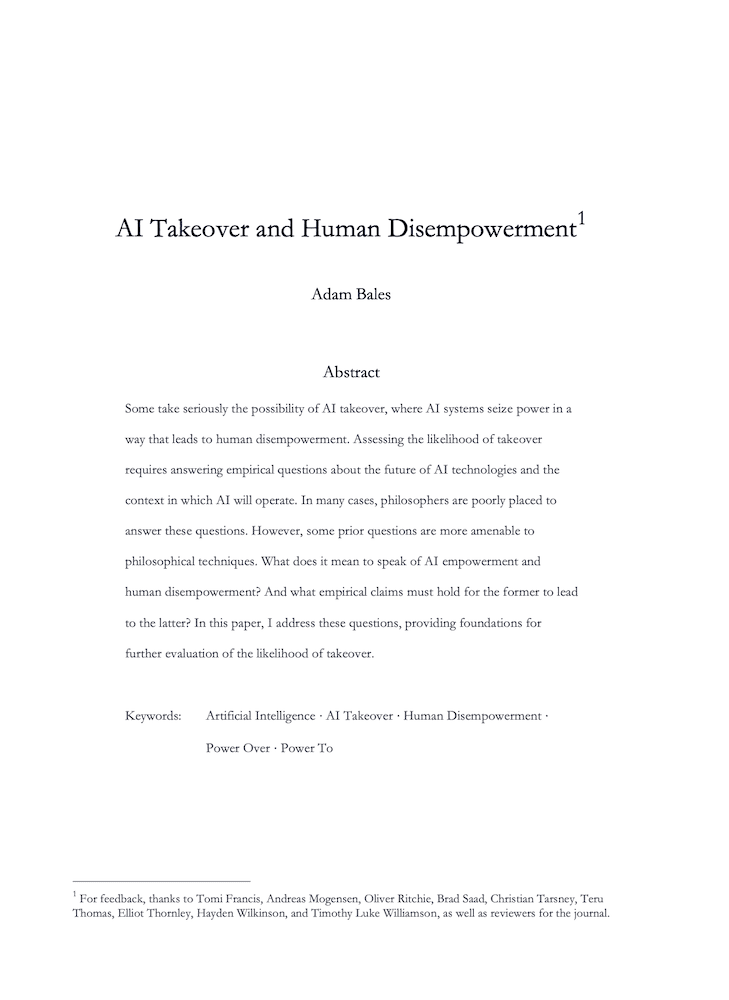AI takeover and human disempowerment
Adam Bales (Global Priorities Institute, University of Oxford)
GPI Working Paper No. 9-2024, forthcoming in The Philosophical Quarterly
Some take seriously the possibility of AI takeover, where AI systems seize power in a way that leads to human disempowerment. Assessing the likelihood of takeover requires answering empirical questions about the future of AI technologies and the context in which AI will operate. In many cases, philosophers are poorly placed to answer these questions. However, some prior questions are more amenable to philosophical techniques. What does it mean to speak of AI empowerment and human disempowerment? And what empirical claims must hold for the former to lead to the latter? In this paper, I address these questions, providing foundations for further evaluation of the likelihood of takeover.
Other working papers
Altruism in governance: Insights from randomized training – Sultan Mehmood, (New Economic School), Shaheen Naseer (Lahore School of Economics) and Daniel L. Chen (Toulouse School of Economics)
Randomizing different schools of thought in training altruism finds that training junior deputy ministers in the utility of empathy renders at least a 0.4 standard deviation increase in altruism. Treated ministers increased their perspective-taking: blood donations doubled, but only when blood banks requested their exact blood type. Perspective-taking in strategic dilemmas improved. Field measures such as orphanage visits and volunteering in impoverished schools also increased, as did their test scores in teamwork assessments…
The unexpected value of the future – Hayden Wilkinson (Global Priorities Institute, University of Oxford)
Various philosophers accept moral views that are impartial, additive, and risk-neutral with respect to betterness. But, if that risk neutrality is spelt out according to expected value theory alone, such views face a dire reductio ad absurdum. If the expected sum of value in humanity’s future is undefined—if, e.g., the probability distribution over possible values of the future resembles the Pasadena game, or a Cauchy distribution—then those views say that no real-world option is ever better than any other. And, as I argue…
Time Bias and Altruism – Leora Urim Sung (University College London)
We are typically near-future biased, being more concerned with our near future than our distant future. This near-future bias can be directed at others too, being more concerned with their near future than their distant future. In this paper, I argue that, because we discount the future in this way, beyond a certain point in time, we morally ought to be more concerned with the present well- being of others than with the well-being of our distant future selves. It follows that we morally ought to sacrifice…

